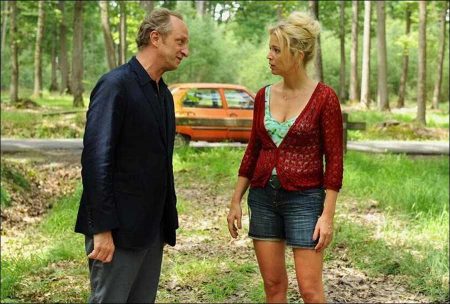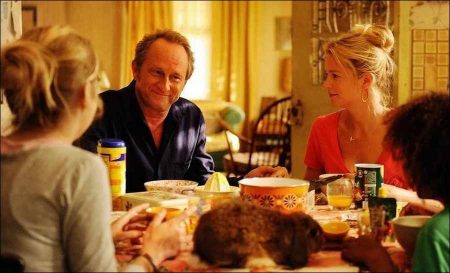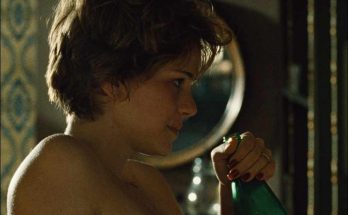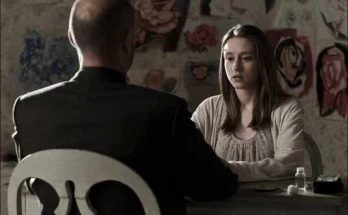Family for Rent movie storyline. Paul-André has many things: a sumptuous house, a state-of-the-art car, a butler at his service. Only, Paul-André is alone and bored. A disillusioned businessman, he decides to “treat” himself to a family, the way you would buy a steak in the frozen food section.
For this, he offers a deal to Violette, a little woman full of pep and protective mother of her two children: in return for repurchasing all her debts, Paul-André will move in with her for three months, in order to discover the ” joys” of family life, all being governed by a contract with all honor… But he ignores the surprises that his “family for rent” has in store for him who are far from letting him rule the roost in their territory.
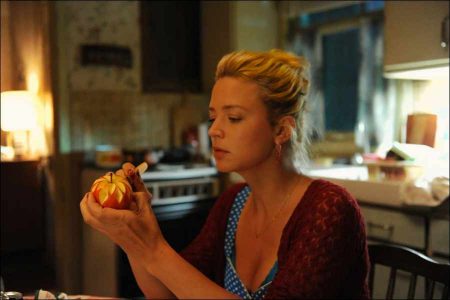
Film Review for Family for Rent
A Family for Rent is not a bad film, but its problem is that it is terribly classic and I felt like I had seen it hundreds of times (I happen to be very customer of the genre) under different titles!
However, there are some good ideas that deserve to be explored in a little more depth. The social aspect although a little too black and white between the cheerful and resourceful unemployed woman and the lonely and sad bourgeois in his Bruce Wayne mansion. It remains an interesting role for Benoît Poelvoorde who once again displays his neuroses on screen as with Anne Fontaine.
The first half is really very funny: the characters are great, well written, the complementarity is correctly exploited (it could go further but it’s already good), the situations are funny and well exploited. The second half is less effective: the development is more disjointed, the small victories are a little easy, perhaps because the author spends too much time on each scene without it allowing the story to evolve, as a result, progression occurs in fits and starts;.
The ending is quite unsightly, with a series of dramatic twists (including the expected revelations to the family). It’s also disappointing, because in the end, there isn’t really a scene that really proves that the characters are falling in love, there’s no work on this romance, as if the simple being a nice person and having to live with it made him a person worthy of his love: it’s too easy.
And then it superficializes the issues and it’s a shame, because the film poses quite interesting questions in itself and the authors avoid delivering a product that is too smooth, at least in its first half (the portrait of the family is trashier that I would have thought, well there is always the son who is too nice for my taste, but it was necessary to create a connection so that the hero does not run away as quickly as possible).
I don’t agree with the speech at all. First of all, no matter how the film ends, we can only remember one thing: money buys happiness. The guy buys the family and the only scene where everyone is happy to be together is when he coughs up his wallet to go to a great hotel. It’s THE only time the family doesn’t argue.
It’s a shame not to have known how to build happiness differently. The other important message of the film is that it is the one who brings in the money who is the head of the family. The idea in itself is attractive for developing the main character, but in practice, we will remember that it was really what this family needed, that the woman receive her little orders and that discipline imposed on the children will inevitably allow them to flourish and appreciate this principal who is the new ‘father’.
I’m not sure that it was the authors’ desire to deliver such a message given the final conclusion where the children clearly indicate that they are messy, that it is their nature thus, suddenly, the hero loses his status as ‘leader’, but it’s still quite weak, given that throughout the film the only moments where he doesn’t yell are when he gives his orders.
And when he coughs up money… There are clues left unanswered in the scenario: what will the family think when they see Paul-André again? Will Violette manage to get rid of her family who like to make fun of her and devalue her without her realizing it? Either. Everyone is free to express the opinion they want. Here, the messages lose their force because of the less constructed second half of the storyline. And that’s what bothers me the most in the end: that it’s disjointed.
The staging works well. The settings are nice but not used enough. The photography is correct. The cutting works well, the comic passages are well highlighted by the camera work. Only the picnic scene is weird: it happens abruptly and with this brilliant effect, we have the impression that it could be a dream even though it’s not. The editing is well paced.
The actors are good: Efira does not let herself be eaten by Poelvoorde; she offers a quite astonishing dramatic performance for this film, it’s quite bizarre. The kids are playing well. Poelvoorde found a good role, it’s been a long time; It’s a bit sad to say but it’s really in the character of the loser that he excels the most, and here he is good in this violent restraint. The music is playing too.
Family for Rent (2015)
Une Famille à Louer
Directed by: Jean-Pierre Améris
Starring: Benoît Poelvoorde, Virginie Efira, François Morel, Philippe Rebbot, Pauline Serieys, Calixte Broisin-Doutaz, Edith Scob, Nancy Tate, Nathalie Gessier, Gwendoline Hamon
Screenplay by: Jean-Pierre Améris, Murielle Magellan
Production Design by: Franck Schwarz
Cinematography by: Virginie Saint-Martin
Film Editing by: Anne Souriau
Costume Design by: Paule Mangenot
Set Decoration by: Valérie Chemain
Art Direction by: Cécile Arlet Colin
MPAA Rating: None.
Distributed by: StudioCanal (France and United Kingdom)
Release Date: August 19, 2015 (France), November 6, 2015 (United Kingdom)
Views: 138
